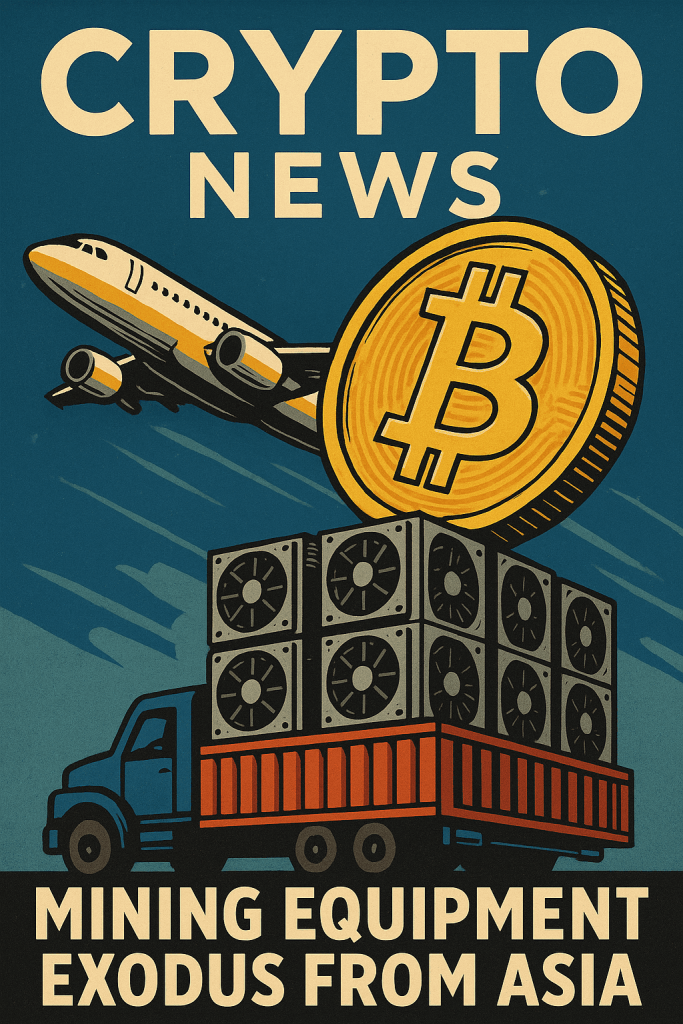
As the United States considers new tariffs on high-tech imports, a growing number of cryptocurrency miners are scrambling to move their mining equipment out of Asia in anticipation of higher costs and regulatory friction.
The urgency stems from recent trade policy shifts that could soon impose steep import duties on specialized electronics, including Bitcoin mining rigs. These devices—critical for processing blockchain transactions—are primarily manufactured in China and Southeast Asia. If implemented, the tariffs could significantly raise costs for miners operating in North America.
Industry insiders report a noticeable spike in orders to relocate mining hardware to destinations like the United States, Canada, and parts of Europe. Some logistics companies have seen an increase in air freight bookings from Hong Kong and Shenzhen, with customers willing to pay a premium to ensure their gear arrives before new regulations take effect.
In addition to avoiding tariffs, some mining firms view the relocation as a strategic move to align with jurisdictions that offer more transparent legal protections, stable power prices, and access to institutional capital. Several mining companies with operations in Asia are now expediting long-term plans to diversify geographically.
However, the sudden demand is creating logistical bottlenecks. Freight costs have surged, customs clearances are slower, and some shipments are experiencing delays at ports and airports due to congestion. Meanwhile, concerns about supply chain resilience continue to mount, as miners fear further disruptions from geopolitical shifts.
This emerging shift signals a broader transformation in the global mining landscape. While Asia has long dominated hardware production and deployment, mounting trade tensions and regulatory uncertainty are accelerating the decentralization of mining operations across the globe.
